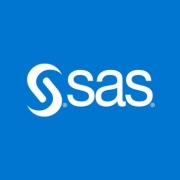Master Data Management (MDM) Software centralizes and organizes critical business data, ensuring its accuracy and consistency across an organization’s operations, increasing data quality and compliance.
MDM Software provides an integrated approach to managing, maintaining, and harmonizing data, empowering businesses to break down silos and leverage comprehensive data insights. With user feedback emphasizing ease of integration and robust functionality, MDM solutions facilitate better decision-making by ensuring data reliability across various departments and systems. The software supports scalable frameworks, advancing operational efficiency and agility.
What are the critical features of Master Data Management Software?In industries such as finance and healthcare, MDM solutions are used to consolidate and streamline data from multiple systems, improving compliance with regulations and enhancing patient or client data management. Retail and manufacturing sectors use MDM to optimize supply chain logistics and maintain accurate product details across channels.
Organizations benefit significantly from implementing Master Data Management systems, as they streamline data-driven processes, boost data transparency, and significantly improve data accuracy, leading to better strategic decisions and operational success.






























Master data management (MDM) is the process of establishing specific dynamic rules to ensure master data is precise, accurate, and true. Master data management will look at and review every aspect of the data, from entry to maturity, and discover where any integrity issues can, have, or will occur. MDM will also identify and fix any errors, duplicates, or irregularities to the master data and set guidelines to ensure those issues are not repeated in the future. Solid MDM will bring all aspects of the business organization together and integrate all data cohesively and seamlessly to ensure the business can maintain the highest levels of functionality, productivity, and profitability.
Today, every business relies heavily on its digital processes to get the desired, successful results needed to ensure the highest levels of transparency, productivity, and profitability. It is vital to the inherent business life cycle to guarantee every component of the process is secure, consistent, and accurate. An effective, efficient master data management solution will give you the best perspective on the full 360 life-cycle of your business process from inception, development, manufacturing, sales, distribution, customer satisfaction, and more. If there is ever any compromise in the integrity of your data, a gap in your business processes or supply chain management could occur, resulting in customer satisfaction that could be severely affected and result in a potential loss of productivity and profitability.
Imagine there was an incorrect address for a key supplier to deliver the necessary product for manufacturing. If those much-needed supplies went to the wrong location, how many days of productivity would be lost? How would such an error affect manufacturing, order fulfillment, on-time delivery, or customer satisfaction? Such an avoidable error could result in tremendous loss to an organization. This is only one example of the importance of utilizing a master data management solution for your organization.
There are varying levels of responsibility with regard to master data management. Every organization has different titles for its pre-assigned role-players. In this process, you generally have three basic levels of responsibility: administrators, processors, and data process clerks. Below is an example of their roles and responsibilities.
Administrators: This group is the creators and governors of the solution. They will decide how the data will be managed, the duties required to manage the data solutions, how the data will be used, and who has access to the data, and be responsible for the overall process.
Processors: This group owns the process of setting up, configuring solutions, problem-solving, and ensuring those solutions meet all the criteria prescribed by the administrators. They will set and manage the rules for caring for the data throughout the 360 life-cycle process for the entire organization.
Data process clerks: This group is the first point of contact for organizing, inputting, repairing, cleansing, and maintaining the data inside the solution. These valuable key players come from many different areas of the organization. They can be from HR, accounting, marketing, shipping, or any point of service where any data would be introduced to your organization. Their roles and responsibilities are assigned per the direction of the administrators of the master data management solution.
MDM Software improves data quality by creating a centralized repository where you can manage and maintain master data. This ensures consistency, eliminates duplicates, and enhances accuracy by aligning data across different systems. Implementing MDM Software helps in establishing data standards and governance rules, which are crucial for maintaining high data quality. As a result, you gain better insights, reporting accuracy, and operational efficiency.
What are the key features to look for in MDM Software?When selecting MDM Software, look for features such as data integration, data governance, data quality management, and hierarchy management. A strong MDM solution should offer robust data modeling, mapping, and harmonization capabilities. Additionally, it should support collaboration by providing user-friendly interfaces for both technical and non-technical users. Scalability, security, and compliance are crucial aspects to consider, ensuring the software can adapt to evolving business and regulatory requirements.
How can MDM Software assist in compliance and regulatory requirements?MDM Software helps you maintain compliance by ensuring data accuracy and consistency, which are critical for meeting regulatory requirements such as GDPR and CCPA. The software enables you to establish data governance policies that protect sensitive information and manage data privacy. By having a single source of truth, you can easily track, audit, and report on data changes, reducing the risk of non-compliance and potential penalties.
Why is scalability important in MDM Software solutions?Scalability is essential in MDM Software as it allows your organization to grow and adapt to changing data volumes without degrading performance. A scalable MDM solution can handle increased data sources and users, ensuring continuous data consistency and reliability. As your business expands, scalable MDM Software supports new and emerging data types, ensuring that you remain agile and responsive to market changes.
What are the integration capabilities of MDM Software?MDM Software offers integration capabilities that allow you to connect and synchronize data across various systems, such as ERP, CRM, and other business applications. These capabilities make it possible to create a unified view of your data, providing you with real-time insights and streamlined operations. Look for MDM solutions that support both batch and real-time data synchronization, as well as API integration, to ensure seamless connectivity and data flow among your systems.